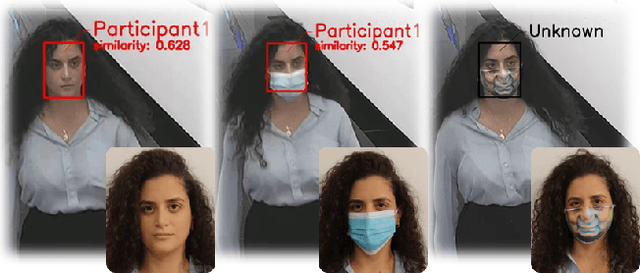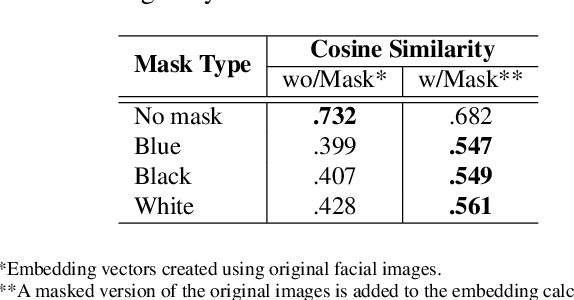Adversarial Mask: Real-World Adversarial Attack Against Face Recognition Models
Paper and Code
Nov 21, 2021



Deep learning-based facial recognition (FR) models have demonstrated state-of-the-art performance in the past few years, even when wearing protective medical face masks became commonplace during the COVID-19 pandemic. Given the outstanding performance of these models, the machine learning research community has shown increasing interest in challenging their robustness. Initially, researchers presented adversarial attacks in the digital domain, and later the attacks were transferred to the physical domain. However, in many cases, attacks in the physical domain are conspicuous, requiring, for example, the placement of a sticker on the face, and thus may raise suspicion in real-world environments (e.g., airports). In this paper, we propose Adversarial Mask, a physical adversarial universal perturbation (UAP) against state-of-the-art FR models that is applied on face masks in the form of a carefully crafted pattern. In our experiments, we examined the transferability of our adversarial mask to a wide range of FR model architectures and datasets. In addition, we validated our adversarial mask effectiveness in real-world experiments by printing the adversarial pattern on a fabric medical face mask, causing the FR system to identify only 3.34% of the participants wearing the mask (compared to a minimum of 83.34% with other evaluated masks).
 Add to Chrome
Add to Chrome Add to Firefox
Add to Firefox Add to Edge
Add to Edge